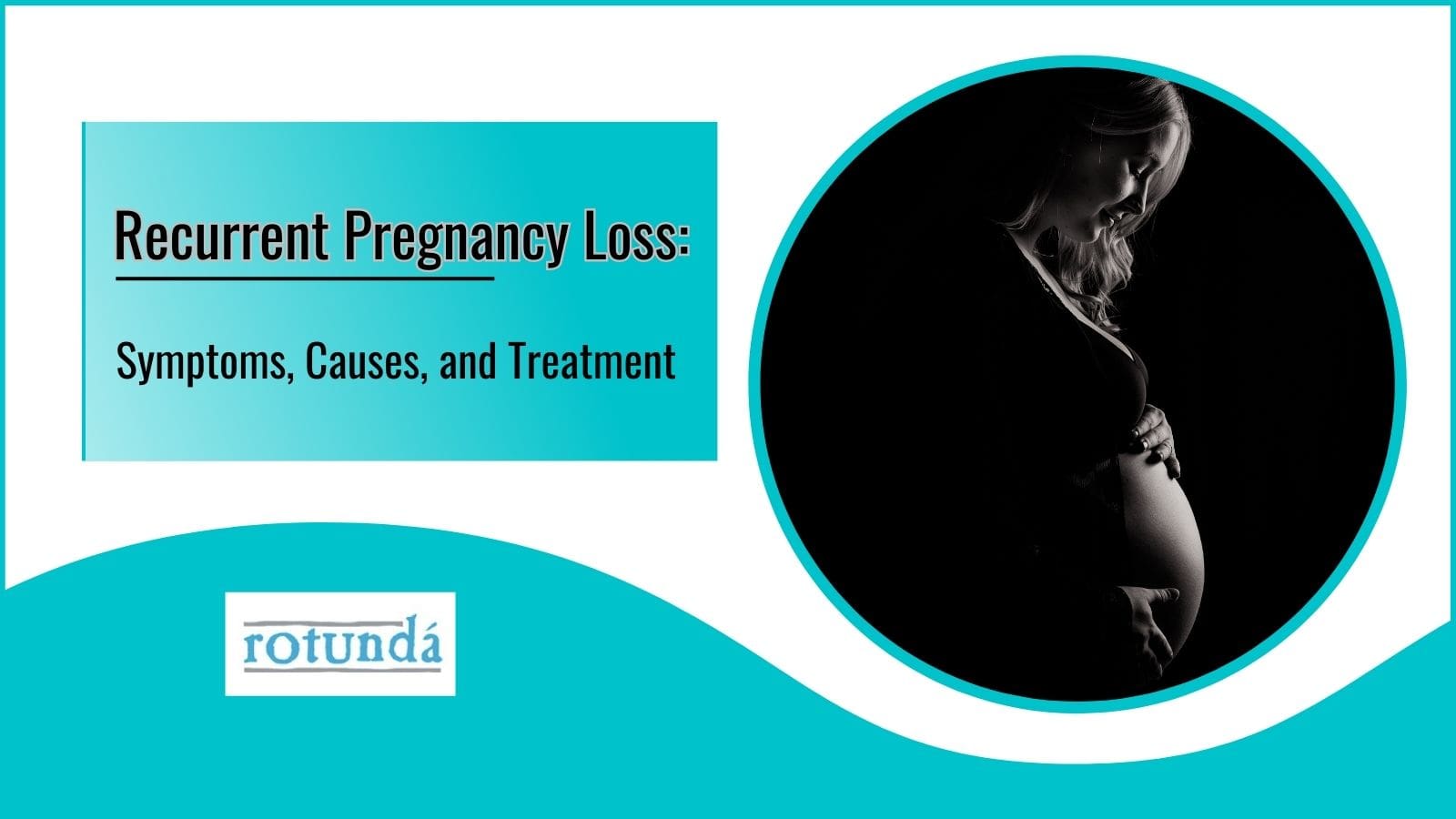



Recurrent pregnancy loss is a condition in which a woman has two or more subsequent miscarriages within the first 20 weeks of clinically recognized pregnancy (confirmed in the clinic by an ultrasound). According to a study, about 10 to 20 percent of known pregnancies end in miscarriage.
Recurrent miscarriage is a distressing pregnancy disorder experienced by 20% of women trying to conceive. Learn more about the recurrent miscarriage symptoms to analyze them quickly.
According to WebMD, more than 80% of miscarriages happen within the first trimester of pregnancy and are less likely to happen after 20 weeks.
You must contact your doctor immediately if you suffer from any of the miscarriage symptoms, including:
● Weight loss
● Weakness
● Severe abdominal or back cramps
● Pain in the belly
● Loss of signs of pregnancy
● Uterus contractions
● White-pink mucus discharge
● Light to heavy vaginal bleeding
● Blood clots released through the vagina
● Fever with any of these symptoms
In the first three months, miscarriages occur due to genetic abnormalities in the baby, infections, or hormone deficiency.
Chromosomal or genetic defects occur more commonly in:
· Advanced maternal or paternal age
· Genetic imbalance in parents
· Marriage among cousins
· Families having inherited disorders
Medical ailments in the mother:
Diseases such as diabetes, thyroid, lupus, hypertension, PCOS, and kidney ailments may risk pregnant women.
Infections:
Lifestyle:
Lifestyle habits such as drinking alcohol and caffeine, smoking, and drug abuse hurt pregnancy and can trigger a recurrent miscarriage.
Pregnancy losses in the 4th to 6th month or preterm deliveries can occur due to cervical incompetence or uterine septate.
Immune disorders like lupus, thrombophilia, or anti-phospholipid antibodies can also lead to recurrent pregnancy losses.
To confirm the diagnosis that the miscarriage is due to recurrent pregnancy loss, your doctor will carry out several tests:
There are several recurrent pregnancy loss treatments available that you may benefit from:
If you have a uterine shape abnormality or other uterus-related problems such as the septum, benign tumors, or scar tissues, you may have to undergo surgery to repair these anomalies. A cervical stitch is placed for incompetent services.
Parents are checked for chromosomal imbalance and, if confirmed, are advised genetic counseling. In case you are not able to conceive naturally after the treatment, you may be advised to opt for infertility treatment.
Your doctor may prescribe low-dose aspirin and heparin during pregnancy if you have autoimmune issues or thrombophilia.
Any other health condition that you may have will be monitored and regulated with proper treatment to prevent future complications.
In the case of inherited disease, a test tube baby procedure with genetic testing of embryos and transfer of only normal ones can avoid distressing pregnancy losses or affected offspring.
Adopting a healthy lifestyle is an important step toward preventing a miscarriage. By including these activities in your daily routine, you can prevent recurrent miscarriages:
● Regular exercise
● Proper nutrition
● Avoid caffeinated drinks
● Avoid alcohol
● Say no to smoking
● Take folic acid
● Get tested for diabetes
If you have recurring miscarriage symptoms, you must consult a doctor for pregnancy loss treatment. Sometimes, they may ask you to visit an IVF centre for better results.
If you are looking for the best options in infertility treatment in Mumbai, contact our expert team at Rotunda CHR today. We offer a holistic cure for your reproductive health problems, thus ensuring optimum results.